Table of Contents
- Spend Time for SERP Research
- Target the Most Relevant Keywords
- Strategic Keyword Placement for Effective SEO
- Do an In-Depth Market & Competitors Analysis
- Optimize Your Page Title and Meta Description
- Keep Users On Your Site Longer
- Write Quality Original Content
- Add Text to Infographics, Podcasts and Videos
- Get Backlinks From Your Visual Assets
- Speed Up Your Website
- Use the Google Search Console
- Regularly conduct site-audit
- Rank In The Featured Snippets
- Find More Guest Post Opportunities
- Stay updated with the latest SEO best practise
- Conclusion
- Frequently Asked Questions
- What is SERP research, and why is it important for SEO?
- How do I target the most relevant keywords for my website?
- How can I strategically place keywords for effective SEO?
- Why is an industry study, market research, and competitor analysis important for SEO?
- How do I optimize my page title and meta description for better search visibility?
- What are the key strategies to keep users on my website longer for improved SEO?
- Why is writing quality original content essential for SEO?
- How can I leverage infographics, podcasts, and videos for SEO?
- What are the steps to speed up my website for better SEO performance?
- How does the Google Search Console benefit my SEO efforts?
- Why is it important to conduct regular site audits for SEO?
- How can I rank in featured snippets for increased visibility?
- How do I find more guest post opportunities for backlink building?
- How can I stay updated with the latest SEO best practices?
Best SEO Tips: Boost Your Organic Rankings & Traffic
In the competitive digital landscape, having a strong online presence is crucial for businesses.
But with so many SEO techniques out there, where do you even begin?
From crafting compelling meta descriptions and optimising headlines to leveraging internal linking opportunities and creating valuable content around relevant topics – we’ve got you covered.
So, if you’re ready to take your website’s SEO game to the next level, buckle up and get ready for some actionable tips that will boost your rankings and drive more organic traffic to your site.
Spend Time for SERP Research
This step involves taking a closer look at how search engine result pages (SERPs) are structured and understanding the factors that influence rankings.
This information can help you tailor your content to meet the needs of your target audience and improve your chances of ranking higher in search results.
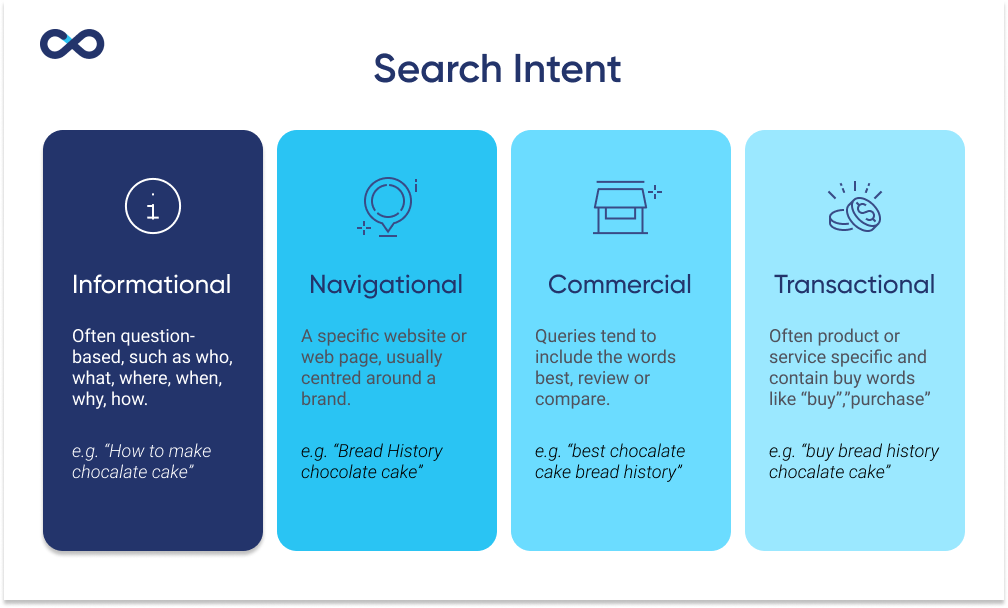
During SERP research, pay attention to the different types of content that appear on the first page of search results.
Are there featured snippets, videos, images, or news articles? Understanding what types of content Google prioritises for certain queries can guide your content creation strategy.
If you search for ‘chocolate cake’, you’ll see videos and websites with cake recipes.
But if you search for ‘buy chocolate cake’, Google will recognise that you want to make a purchase, and the search results will show places or websites where you can buy chocolate cake.
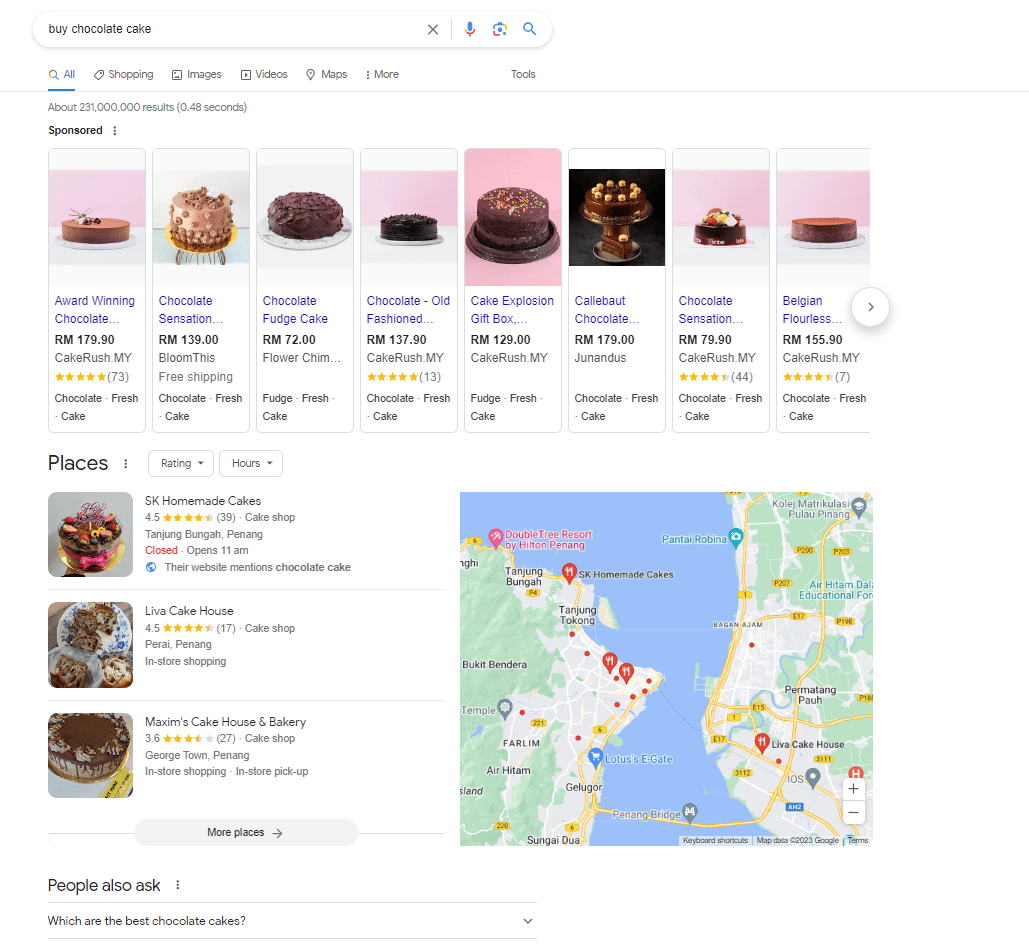
Take note of the meta titles and descriptions used by top-ranking pages. Analysing these elements can give you an idea of how competitors are positioning themselves in search results and help you craft more compelling meta tags for your own pages.
Moreover, observing which websites consistently rank well for relevant keywords can provide inspiration for link-building opportunities.
By identifying authoritative sites within your industry or niche, you can reach out to them with valuable content or collaboration ideas that may lead to backlinks and increased visibility.
Target the Most Relevant Keywords
Keyword research lets you understand what terms and phrases your target audience is searching for, helping you create content that aligns with their interests and needs.
When selecting keywords, it’s essential to focus on those that are relevant to your website or business. These are the words and phrases that potential customers are likely to use when searching for products or services like yours.
One way to find relevant keywords is by using keyword research tools.
These tools provide insights into the search volume and competition level of different keywords, allowing you to identify high-volume keywords with low competition.
High-volume keywords are frequently searched terms, while low competition means there are fewer websites targeting those specific keywords.
In addition to high-volume keywords, it’s also beneficial to target long-tail keywords.
Long-tail keywords are more specific phrases that typically have lower search volume but higher conversion rates.

For example, instead of targeting a broad keyword like “running shoes,” you could target a long-tail keyword like “running shoes for flat feet.”
This narrows down the search intent and attracts users who are specifically looking for what you offer.
Lastly, when incorporating keywords into your content, it’s important to do so naturally and organically.
Avoid overstuffing your content with too many keywords, as this can negatively impact your rankings. Instead, focus on creating valuable and informative content that incorporates relevant keywords in a natural manner.
Strategic Keyword Placement for Effective SEO
Strategic keyword placement is crucial. By strategically placing keywords throughout your content, you can enhance its relevance and improve your website’s visibility in search results.
Placing Keywords in Page Titles, Headings, Meta Descriptions, and URL Slugs
One of the key areas where you should optimise your target keywords is in page titles.
The page title is an essential element that search engines consider when determining the topic and relevance of a webpage.
Including your target keywords in the page title can help search engines understand what your content is about and improve its chances of ranking higher.
Let’s take our blog post about SEO ranking as an example. We use this strategic placement to try to rank for ‘SEO ranking’ keyword.
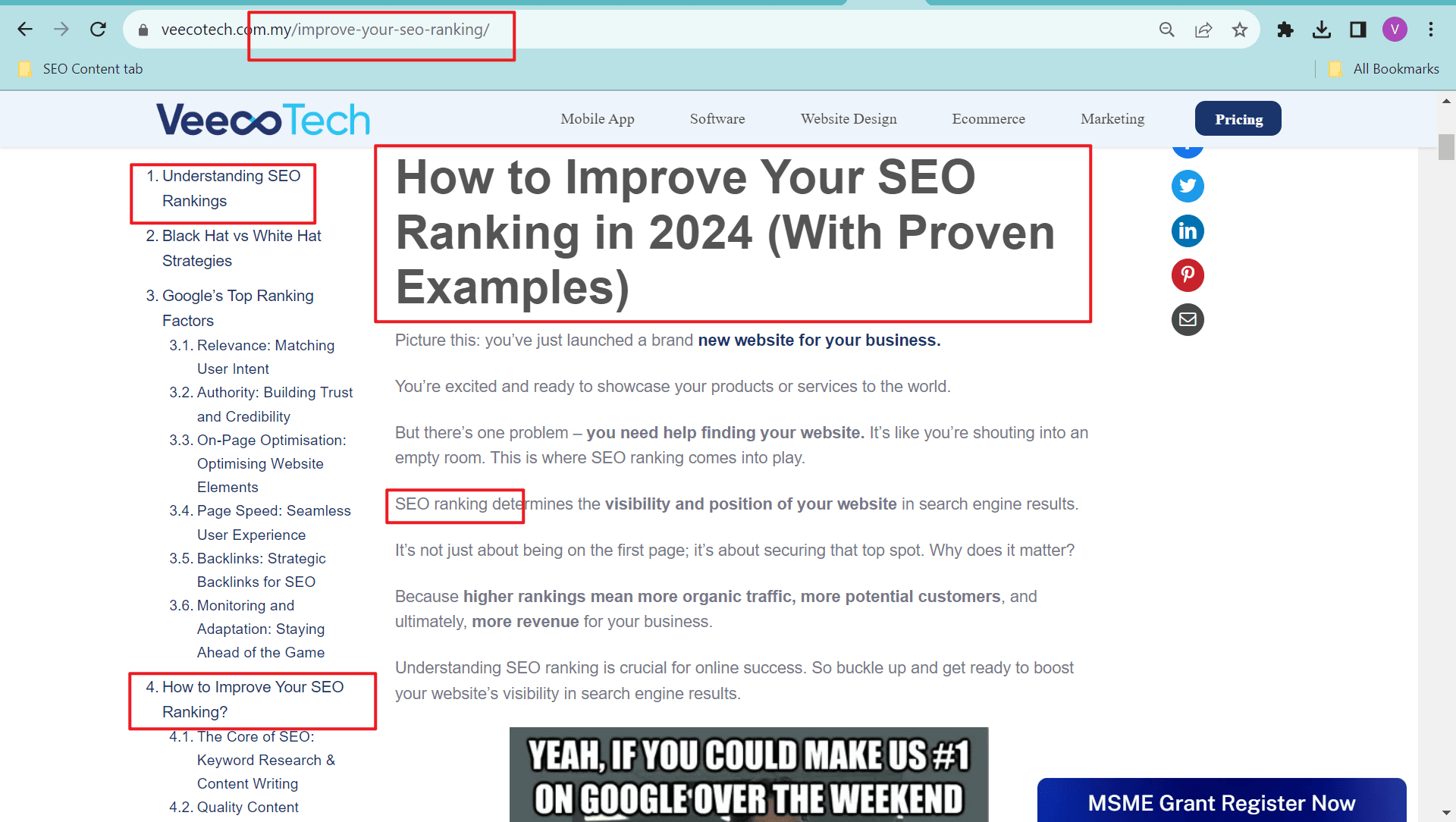
Similarly, incorporating keywords into headings (H1, H2, etc.) can also have a positive impact on SEO. By including relevant keywords in headings, you signal to search engines that those terms are important within the context of your content.
Meta descriptions are brief summaries that appear below the page title in search results. By using targeted keywords naturally within the meta description, you can entice users to visit your site by providing them with a clear idea of what they can expect.
URL slugs refer to the part of a URL that comes after the domain name. Optimising URL slugs with targeted keywords not only helps search engines understand what your webpage is about but also makes it more user-friendly.
Do an In-Depth Market & Competitors Analysis
To truly excel in the world of SEO, it’s important to have a deep understanding of your audience, industry and what your competitors are doing.
One powerful tool that can assist you in this endeavour is Google Analytics. By utilising this platform, you can track the performance of your website and gain insights into user behaviour.
You can identify which pages are performing well and which ones need improvement. This data will help guide your SEO strategy moving forward.
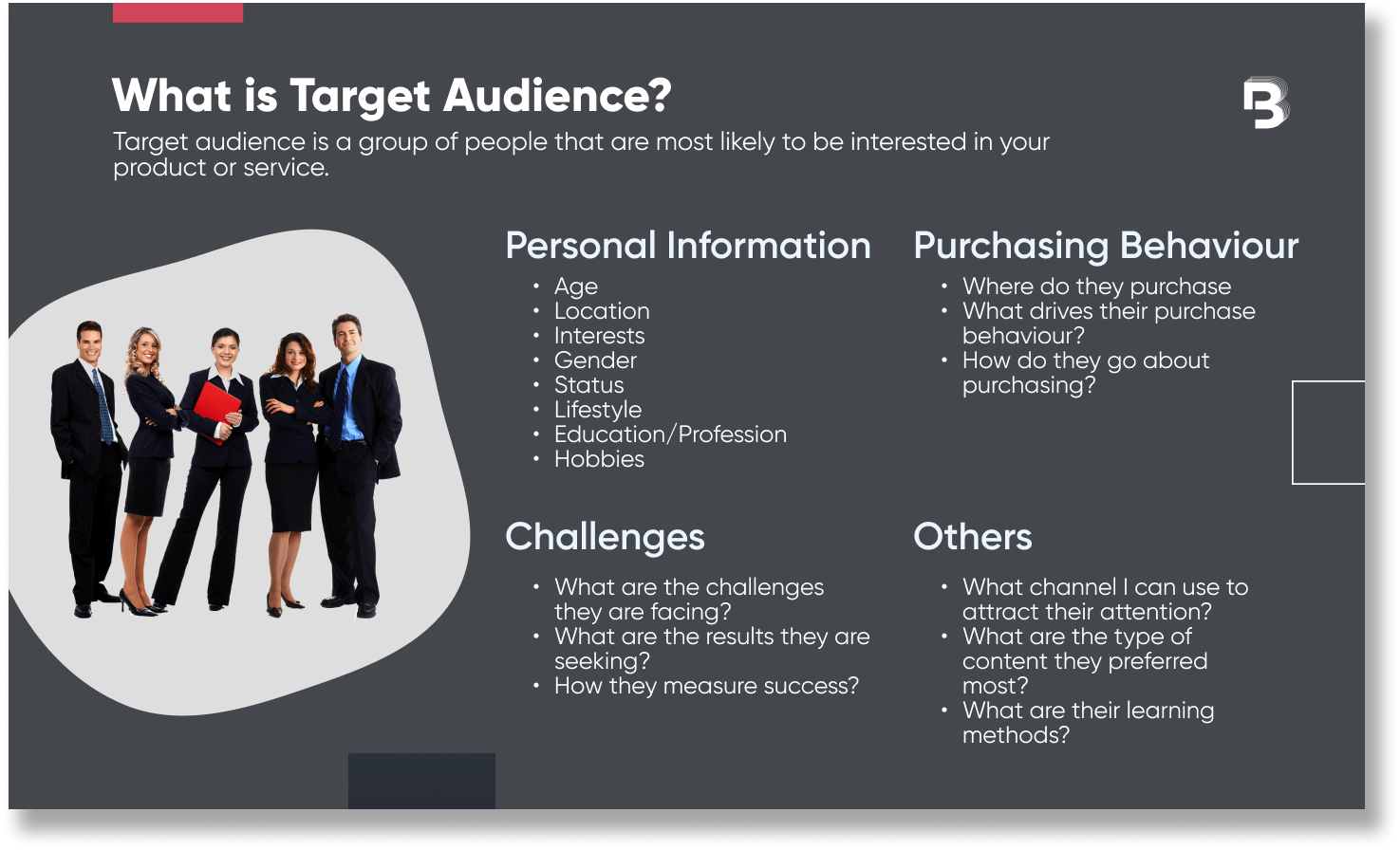
Researching your target audience is also an important step in improving your website’s search engine ranking.
You can start by identifying who they are. Are they young adults, parents, or professionals? Knowing their demographics will help you tailor your content to resonate with them. You can gather this information through surveys, social media analytics, or by studying your competitors’ customer base.
Once you have a clear picture of your target audience, dive deeper into their interests and preferences. What are their pain points and challenges? What solutions are they looking for? By understanding their motivations, you can create content that addresses their specific needs.
Optimize Your Page Title and Meta Description
Your page title, also known as a title tag, should accurately describe the content of your webpage while incorporating relevant keywords.
It’s like the headline of a newspaper article – it needs to grab attention and entice readers to click through to your website.
For example, we have a blog post about “SEO Link Building”. The most effective title would be “Epic Link-Building Case Studies You Can’t Afford to Miss.“. We even have the page ranked for the ‘link building case study’ keyword!
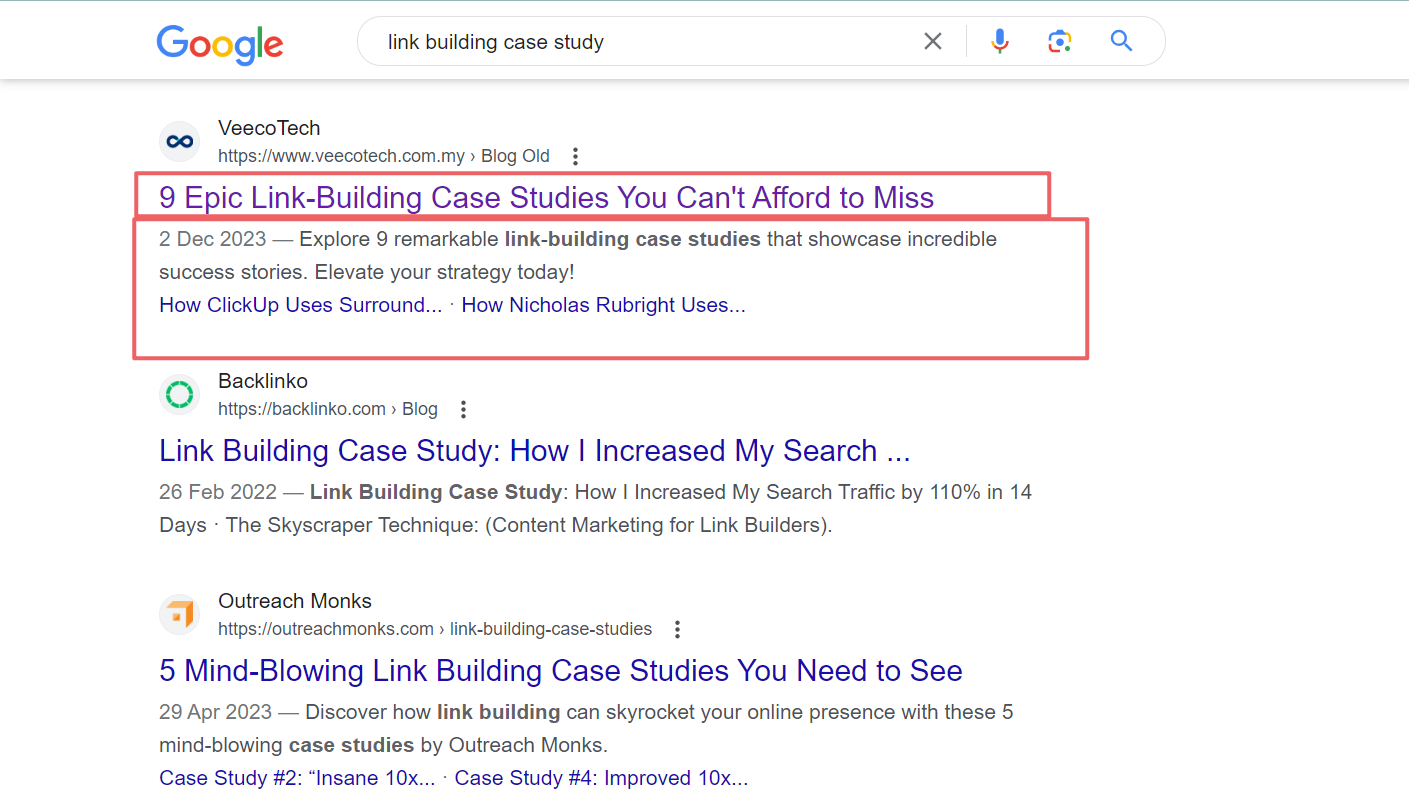
Similarly, a well-crafted meta description should be clear, enticing, and include relevant keywords to attract users’ attention.
To optimise your page titles and meta descriptions effectively, consider these tips:
- Write concise yet informative page titles that accurately reflect the content on your webpage.
- Incorporate relevant keywords naturally into your page titles for better visibility in search results.
- Craft compelling meta descriptions that highlight key information or benefits users will gain by visiting your website.
- Avoid using generic or duplicate meta descriptions across multiple pages on your site.
Keep Users On Your Site Longer
To improve your SEO efforts, it’s important to engage users and keep them on your site for longer periods of time.
When users spend more time on your site, search engines interpret this as a positive signal that your content is valuable and relevant. Here are some steps to help you improve user engagement and increase session duration.
Improve Site Navigation
Make sure that your website is easy to navigate, with clear menus and intuitive links.
A well-organized site structure will help users find the information they’re looking for quickly and easily, reducing bounce rates and increasing the likelihood that they’ll explore more pages on your site.
Optimize Load Times
Compress images, minify CSS and JavaScript files, and leverage browser caching to reduce load times. By making your site faster, you’ll create a better user experience that encourages visitors to stay longer.
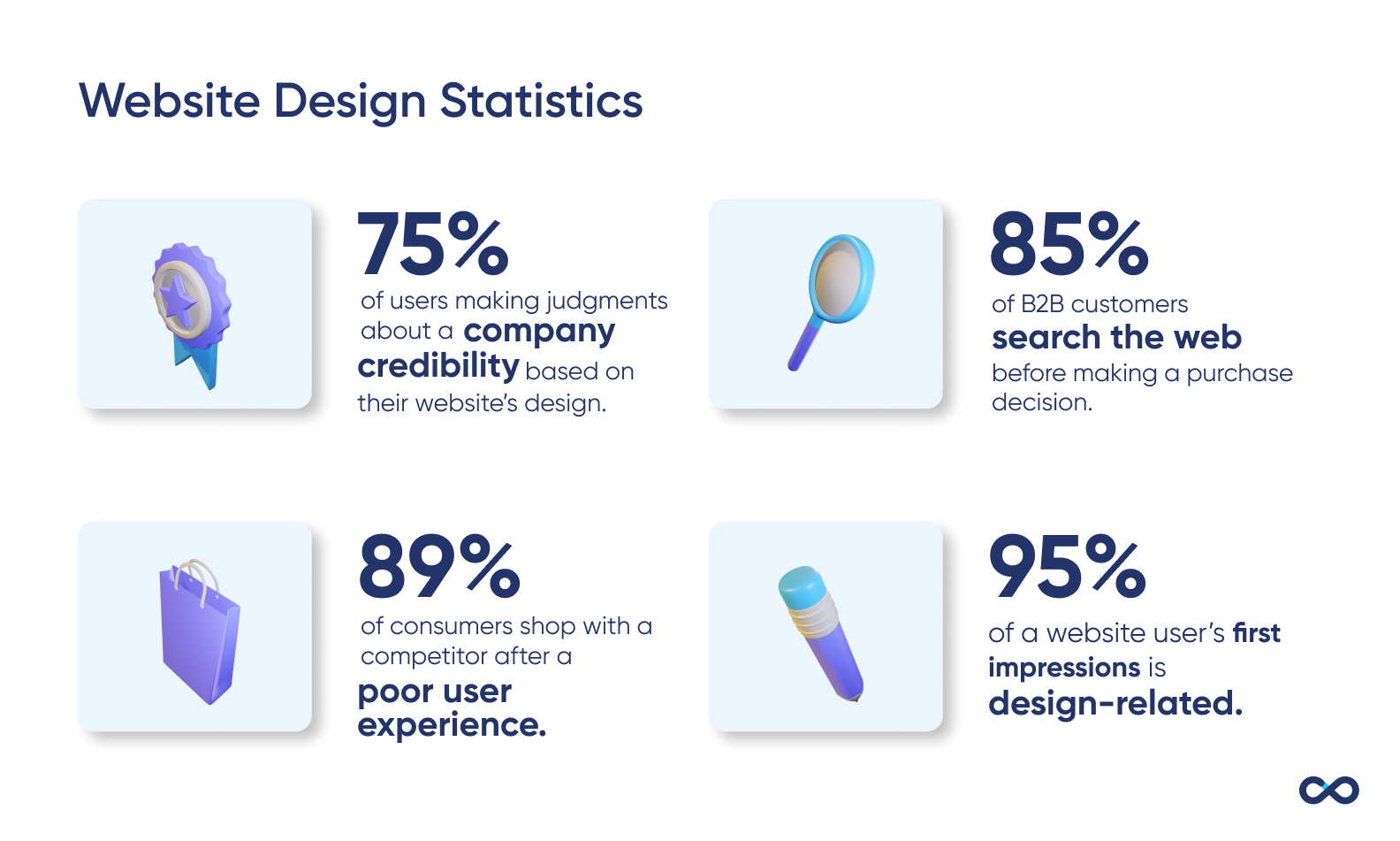
Enhance User Experience (UX)
Ensure that your website is visually appealing, with an attractive design that aligns with your brand identity. Use readable fonts, clear headings, and ample white space to make it easy for users to consume content.
Write Quality Original Content
To truly optimise your website for search engines, it’s essential to focus on creating quality original content.
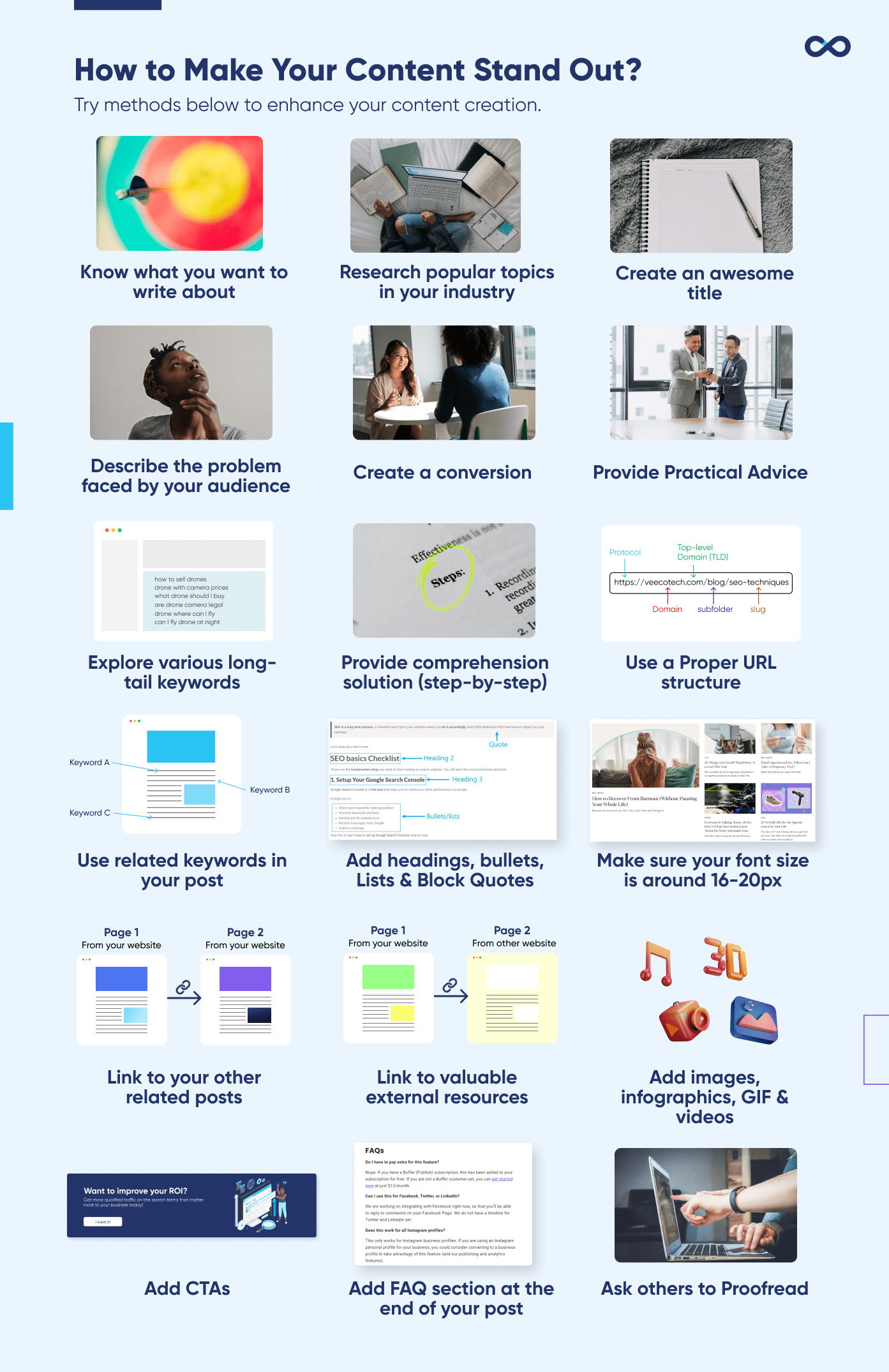
When you write original content, you’re offering something unique and valuable to your readers. This can help establish your website as an authoritative source in your industry or niche.
By providing valuable information, you are more likely to attract and retain visitors, increasing the chances of them engaging with your site and potentially converting into customers.
Search engines like Google prioritise websites that offer valuable and relevant information. When users find helpful answers to their questions on your site, they are more likely to trust your brand and return for future queries.
Writing high-quality content involves conducting thorough research on the topic at hand. It’s important to understand what your target audience is looking for and what questions they have. By addressing these queries in a comprehensive manner, you can position yourself as an expert in the field.
In addition to being informative, original content should also be well-written and engaging.
Use clear language that is easy for your audience to understand, avoiding jargon or technical terms whenever possible.
Break up text into short paragraphs and use subheadings to make it easier for readers to scan through the content.
Another important aspect of writing quality original content is incorporating keywords strategically. By including relevant keywords in your content, you increase the likelihood of appearing in search engine results pages.
Add Text to Infographics, Podcasts and Videos
By providing relevant and descriptive text for your visual assets, you make it easier for search engine crawlers to comprehend your content.
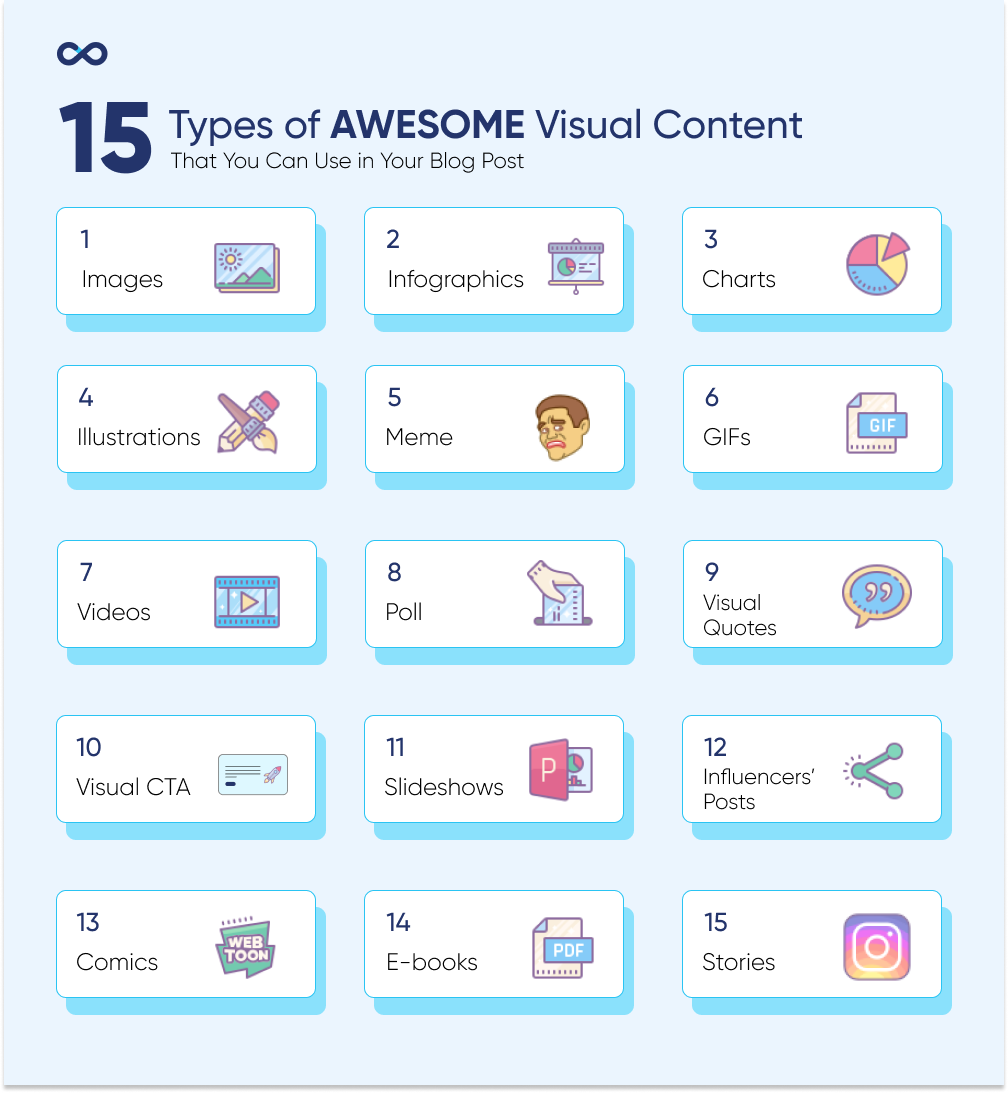
One way to optimise your infographics is by adding alt text. Alt text is a brief description of an image that appears when the image cannot be displayed. It serves as an alternative for visually impaired users who rely on screen readers to navigate websites.
For example, if you have an infographic about “The Benefits of Exercise,” your alt text could be something like “Infographic illustrating the benefits of exercise including improved cardiovascular health, increased strength, and weight management.”
This description provides both users and search engines with valuable information about the content of the infographic.
Similarly, when creating podcasts or videos, consider adding transcripts or captions.
By providing transcripts or captions for podcasts and videos, you open up opportunities for these assets to appear in relevant search queries.
Get Backlinks From Your Visual Assets
People are more likely to share and reference visual content that adds value to their own articles or blog posts.
Backlinks from reputable sources can have a significant impact on your website’s authority and search engine rankings. Search engines consider backlinks as a vote of confidence in the quality and relevance of your content.
When high-authority websites link to your site, it signals to search engines that your website is trustworthy and valuable.
To leverage the power of visual assets for building backlinks, here are some strategies you can implement:
- Create Infographics that Stand Out: When creating infographics, focus on presenting data or complex concepts in a visually engaging way. This will make them more shareable and increase the likelihood of other websites linking back to your infographic.
- Produce Engaging Videos: Creating videos that provide value to your target audience can help attract backlinks from other websites. Consider producing tutorial videos, product demonstrations, or thought-provoking discussions related to your industry.
- Guestographics: Guestographics is a strategy where you reach out to relevant websites in your niche and offer them an infographic that they can publish on their site.
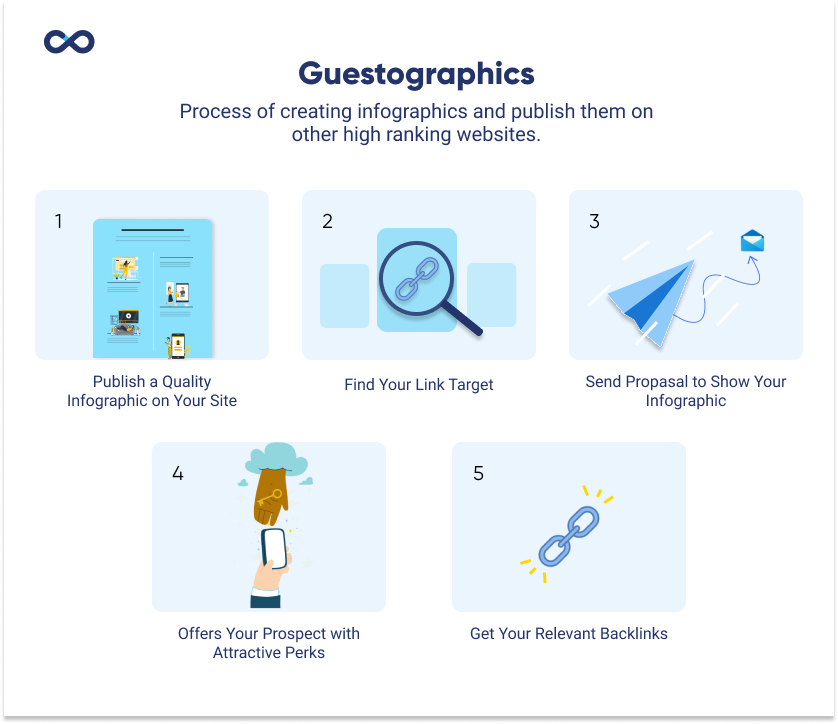
Speed Up Your Website
Every second matters. If your website takes too long to load, visitors may lose interest and leave before even seeing your content.
Improve Page Load Time
This refers to the time it takes for a webpage to load and display its content fully. To improve page load time, you can optimise various elements of your website.
- Optimise Image Sizes: Make sure to compress and resize images before uploading them to your site. Consider using lazy loading techniques where images are loaded only when they come into view rather than all at once.
- Minify CSS and JavaScript: Minification involves removing unnecessary characters such as spaces, line breaks, and comments from these files. This reduces their file size and allows browsers to load them more quickly.
- Enable Browser Caching: Browser caching allows web pages to be stored in a visitor’s browser cache, which means subsequent visits to your site will require fewer resources to load. By enabling browser caching, you can significantly reduce the loading time for returning visitors.
Use the Google Search Console
With this free tool, you can monitor the indexing status of your website, submit sitemaps to ensure all your pages are crawled and indexed by search engines, identify crawl errors that may be affecting your site’s visibility, and analyse the organic search traffic coming to your site.
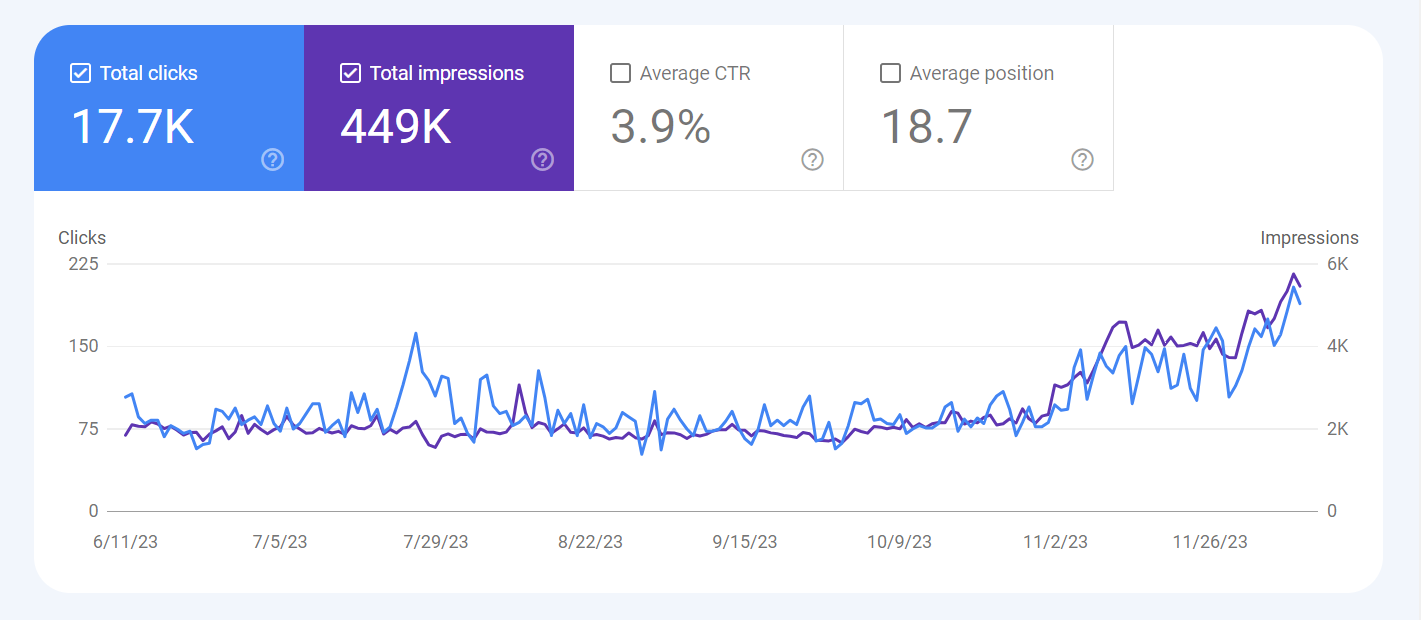
By using the Google Search Console, you can see which keywords are driving traffic to your site, how many impressions and clicks each page is receiving, and even track changes in rankings over time.
This information can help you make data-driven decisions to improve your SEO strategy.
One of the key features of the Google Search Console is its ability to provide detailed information about how search engine crawlers are interacting with your website.
You can see which pages have been crawled and indexed, as well as any errors that may be preventing certain pages from being properly indexed. By addressing these crawl errors, you can ensure that all of your important content is visible to search engines.
Another useful feature of the Google Search Console is its site audit tool. This tool scans your website for common SEO issues such as broken links, duplicate content, and missing meta tags.
By fixing these issues, you can improve the overall health and visibility of your website in search engine results.
The Google Search Console also allows you to submit XML sitemaps directly to Google.
Regularly conduct site-audit
One important aspect of site audits is identifying and addressing zombie pages.
Zombie pages are outdated, low-quality, or irrelevant pages that can negatively impact your website’s SEO. These pages may have been created in the past but no longer serve a purpose or provide value to your audience.
They can clutter your website, dilute its authority, and confuse search engines about the focus and relevance of your content.
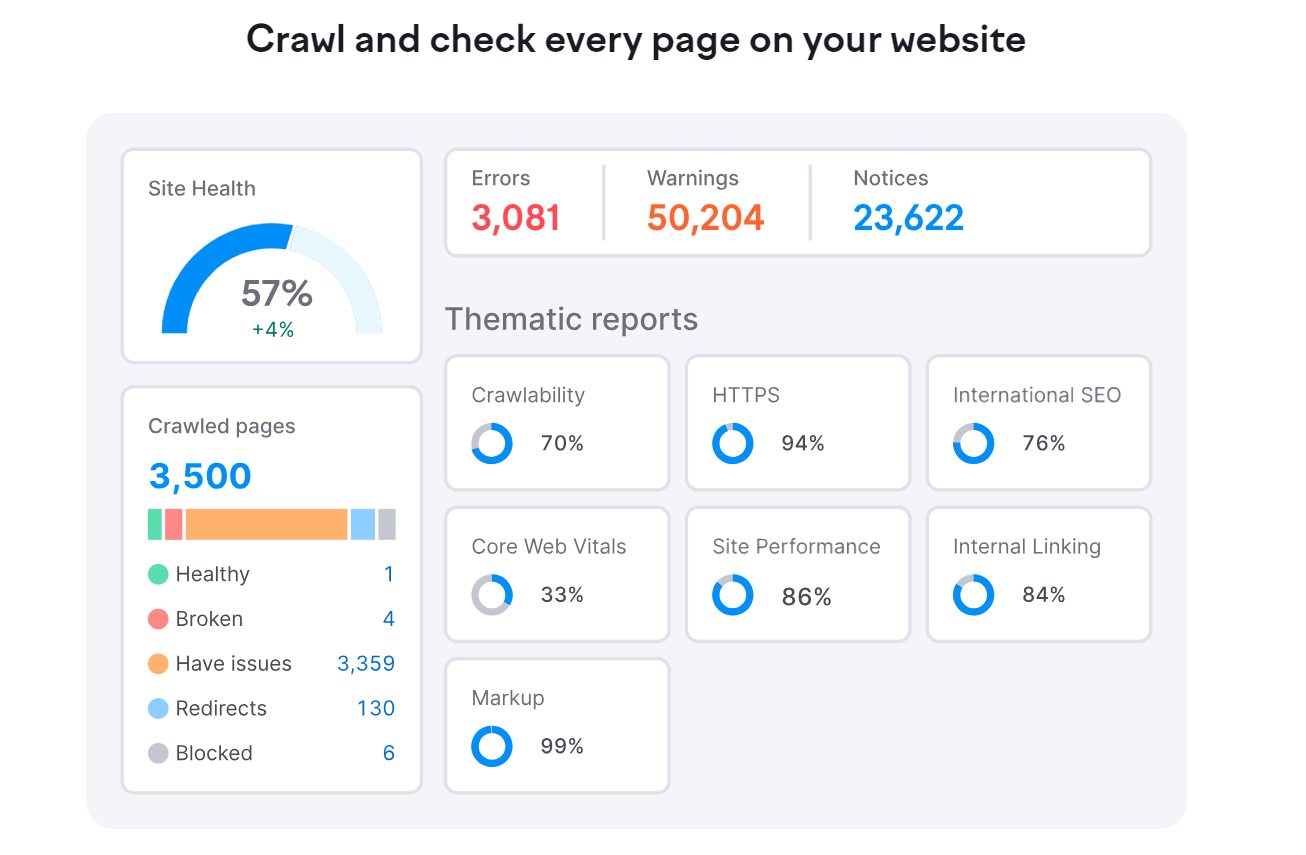
Start by reviewing individual pages on your website to determine if they are still relevant and useful to visitors. Look for outdated information, duplicate content, or thin content that doesn’t offer any substantial value.
Once you’ve identified zombie pages, you have two options: remove them entirely from your website or improve them to make them more valuable.
If a page is completely irrelevant or offers no value at all, it’s best to remove it altogether. This helps streamline your website and ensures that search engines focus on indexing and ranking the most valuable content.
On the other hand, if a page has potential but needs improvement, consider updating the content with fresh information or optimising it for better SEO performance.
Rank In The Featured Snippets
One effective strategy is to use headings, lists, tables, and bullet points throughout your content.
Headings help to organise your content and make it more scannable for both users and search engines.
Lists, tables, and bullet points break down complex information into bite-sized pieces, making it easier for users to consume.
The way you structure your content can have a significant impact on whether or not you rank. Featured snippets are short summaries of information that appear at the top of search engine results pages (SERPs).
They provide users with quick answers to their queries without having to click through to a website.
Search engines look for well-structured content that provides direct answers to user queries when selecting which information to display in the featured snippet.
By using headings, lists, tables, and bullet points strategically within your content, you increase the likelihood of being selected for this coveted position.
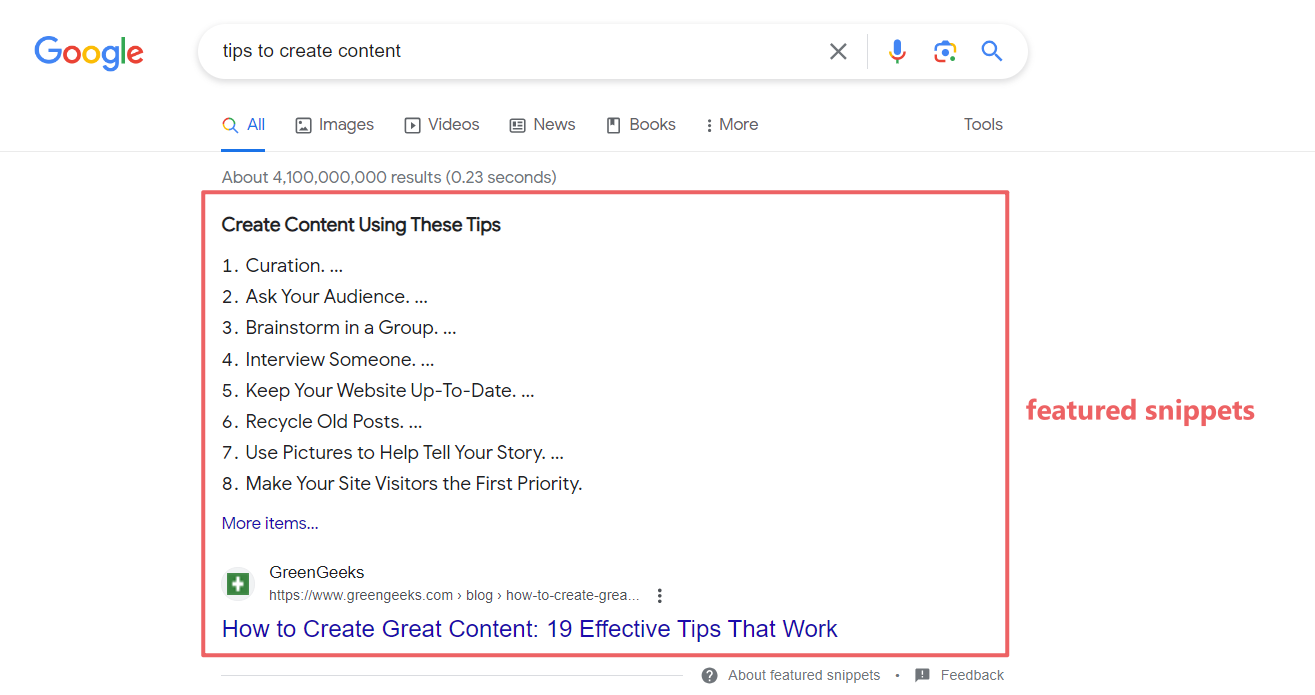
For example, if someone searches for “tips to create content” Google may display a featured snippet with a list tips for content creation based on websites that have structured their contents effectively.
If your website has utilised headings and bullet points throughout an article about content creation, there’s a higher chance that Google will select your content as the source for the featured snippet.
Find More Guest Post Opportunities
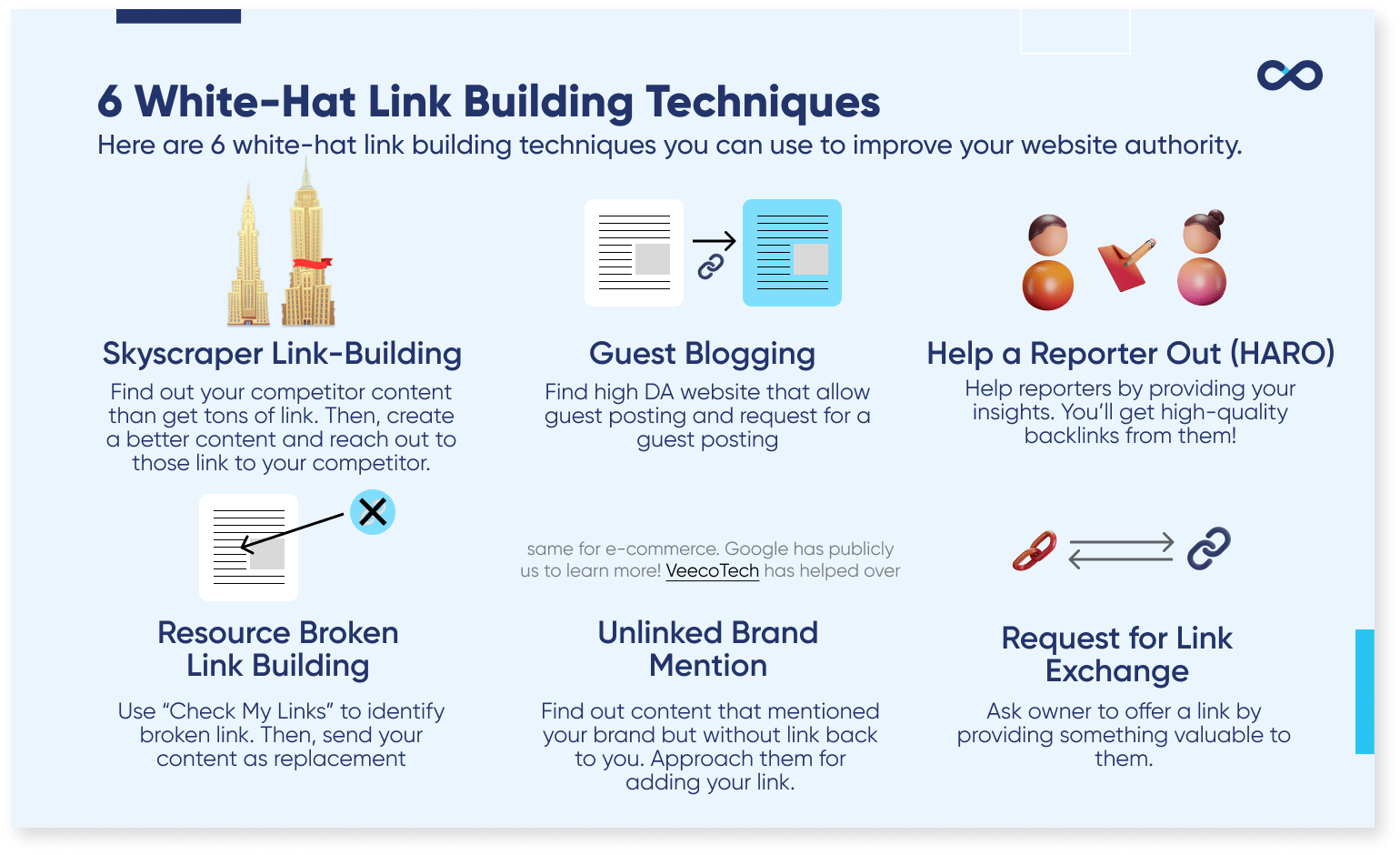
Guest posting is part of white-hat link-building techniques. To find guest post opportunities, start by researching authoritative websites in your niche. Look for websites that have a strong online presence and a large following.
These are the platforms where you want to showcase your expertise and contribute valuable content.
Once you’ve identified potential websites, take the time to understand their guidelines and requirements for guest posting.
Each website may have its own set of rules regarding topics, word count, formatting, and submission process. Make sure to read through these guidelines carefully before reaching out or submitting any content.
When crafting your guest post, remember to provide valuable and informative content that aligns with the website’s audience and objectives.
Aim to deliver unique insights or perspectives that haven’t been covered extensively before. This will not only make your content more appealing but also increase the chances of it being accepted by the website.
Stay updated with the latest SEO best practise
Staying up to date with the latest trends and techniques in SEO marketing is crucial for success in the ever-evolving field.
By continuously adapting your strategies based on emerging best practices, you can ensure long-term success in improving your website’s visibility and ranking on search engines.
To stay informed about the latest SEO best practices, there are several steps you can take:
- Follow reputable industry blogs: These blogs often provide valuable insights, tips, and updates on algorithm changes from search engines like Google. By reading these blogs regularly, you can gain a deeper understanding of current trends and implement them into your own SEO strategy.
- Attend webinars or conferences: Webinars and conferences offer opportunities to learn directly from experts in the field of SEO. These events often cover topics such as keyword research, content optimisation, link building, and more.
- Join SEO communities: By actively participating in these communities, you can learn from others’ experiences and gain valuable insights into what strategies are working well for different websites.
By staying updated with the latest SEO best practices, you can ensure that your website remains optimised for search engines’ algorithms.
Conclusion

And there you have it, the best SEO tips to boost your website’s visibility and drive more organic traffic.
By implementing these strategies, you can improve your search engine rankings, increase your online presence, and ultimately grow your business.
Remember, SEO is an ongoing process, so don’t expect overnight results. It requires consistent effort and monitoring to stay ahead of the competition.
By following these tips and staying committed to improving your SEO efforts, you’ll be well on your way to achieving long-term success in the digital landscape.
So go ahead, implement these strategies, and watch as your website climbs the search engine rankings!
Frequently Asked Questions
What is SERP research, and why is it important for SEO?
SERP research involves analyzing Search Engine Results Pages to understand user behavior and optimize content for better visibility. Spending time on SERP research helps identify trends and improve search rankings.
How do I target the most relevant keywords for my website?
Identifying relevant keywords involves thorough market research. Understanding your audience, industry, and competitors is crucial. Tools like keyword planners can assist in finding high-impact keywords.
How can I strategically place keywords for effective SEO?
Effective keyword placement involves optimizing page titles, headings, meta descriptions, and URL slugs. This comprehensive approach ensures that search engines recognize the relevance of your content.
Why is an industry study, market research, and competitor analysis important for SEO?
A comprehensive analysis of your industry and competitors provides valuable insights. It helps you identify opportunities, trends, and areas for improvement, contributing to a more informed SEO strategy.
How do I optimize my page title and meta description for better search visibility?
Crafting compelling and keyword-rich page titles and meta descriptions is crucial for attracting clicks. This directly impacts your search engine ranking and click-through rates.
What are the key strategies to keep users on my website longer for improved SEO?
Improving site navigation, optimizing load times, and enhancing user experience contribute to longer user engagement. These factors positively impact SEO rankings.
Why is writing quality original content essential for SEO?
Quality content attracts and retains users, improves search rankings, and establishes authority in your industry. It’s a fundamental aspect of successful SEO strategies.
How can I leverage infographics, podcasts, and videos for SEO?
Adding text to visual content, acquiring backlinks from visual assets, and promoting guestographics can enhance the SEO value of multimedia content.
What are the steps to speed up my website for better SEO performance?
Improving page load time, optimizing image sizes, minimizing CSS and JavaScript, and enabling browser caching are essential for a faster website and improved SEO.
How does the Google Search Console benefit my SEO efforts?
The Google Search Console provides valuable insights into your website’s performance on Google. It helps identify issues, monitor search traffic, and optimize content for better visibility.
Why is it important to conduct regular site audits for SEO?
Regular site audits help identify and address technical issues, ensure content relevance, and maintain overall website health for sustained SEO success.
How can I rank in featured snippets for increased visibility?
Structuring content to answer specific user queries, providing concise and valuable information, and optimizing for featured snippets contribute to enhanced search visibility.
How do I find more guest post opportunities for backlink building?
Identifying guest post opportunities involves networking, reaching out to industry influencers, and building relationships. Quality content and relevance are key for successful guest posting.
How can I stay updated with the latest SEO best practices?
Staying informed involves following reputable industry blogs, attending webinars or conferences, and actively participating in SEO communities to keep abreast of evolving trends.


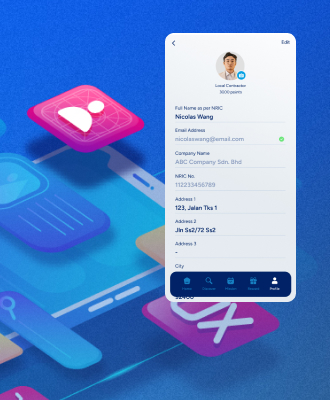

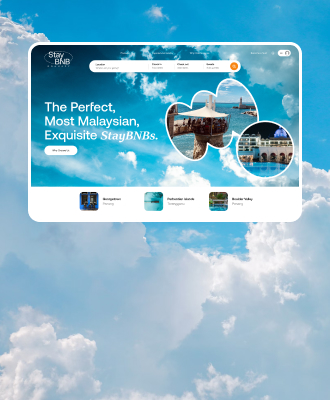

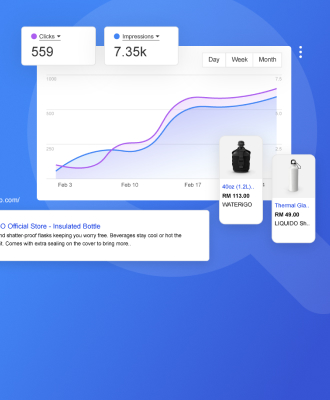
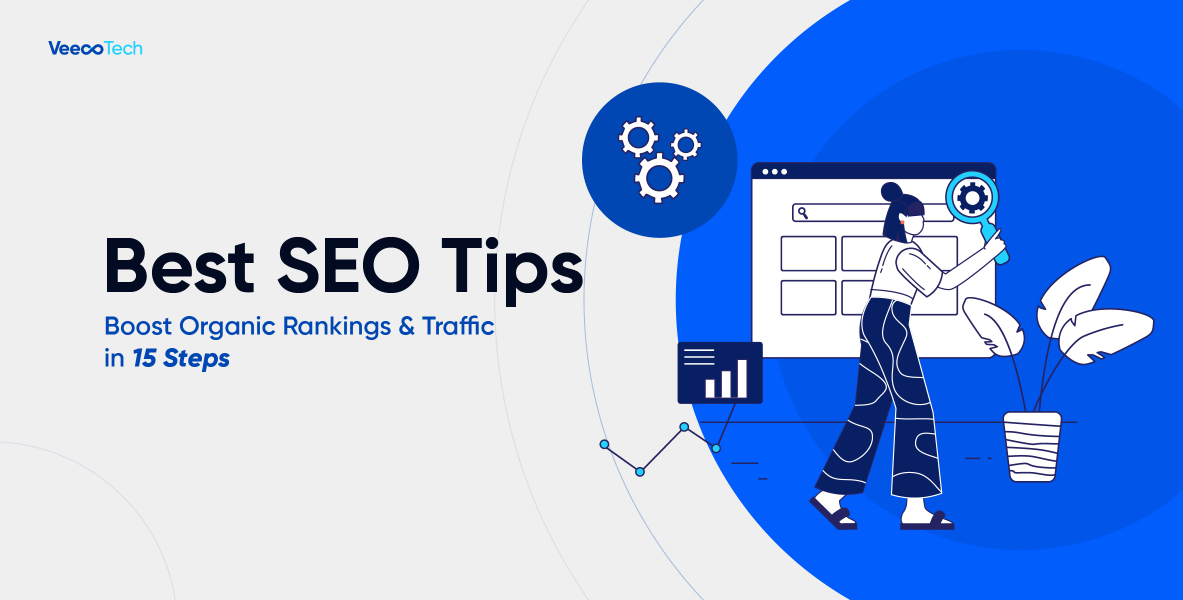


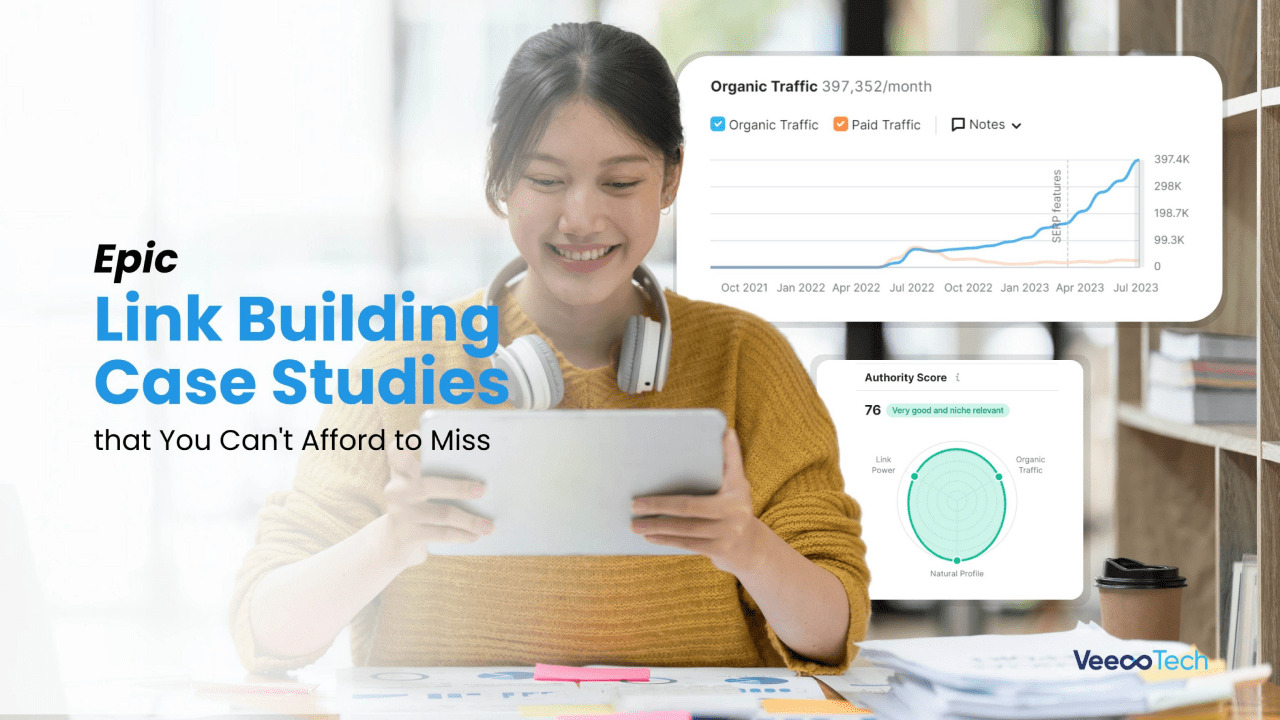


Leave A Comment